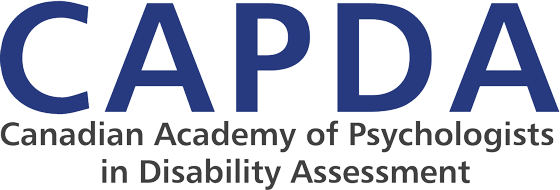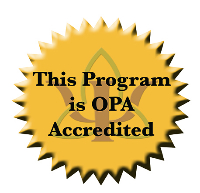Malingering in Psychological Injury and Law: New Developments
May 24, 2024, 2:00 - 5:15 PM
Presented by Gerald Young, Ph.D., C.Psych.
Psychological Injury and Law concerns events at claim that involve diagnoses and conditions, such as trauma disorders/ PTSD, chronic pain disorders, and traumatic brain injuries, especially Mild TBI (MTBI). All are contentious in court because they are susceptible to gross symptom/ impairment exaggeration/ fabrication and malingering for monetary gain. Forensic and related disability assessments (FDRA) include standardized psychometric tests that measure possible test invalidity (negative response bias), such as performance validity tests (PVTs) and symptom validity tests (SVTs).
Neuropsychologists use PVTs to measure cognitive underperformance, for example, for memory (e.g., the TOMM), and psychological assessors generally use SVTs (e.g., the F scales of the MMPI psychopathology personality inventories, such as the MMPI-3) to measure significant endorsement of improbable/ absurd, rare and related items. FDRA assessors will give batteries of such tests, and use algorithms to ascertain the presence of test invalidity for the case at hand. For PVTs, the assessor might give 5 to 10 tests, and generally 2 test fails, or not meeting cut scores, will suggest test invalidity. The situation is not as clear for SVTs, for example, do the 5 F scales of the MMPI-3 (F, Fp, Fs, FBS, RBS) constitute 5 separate SVTs or reflect just one. Moreover, even 2 PVT fails is not universally considered as respondent PVT battery test failure because many PVTs might be administered. Thus, 2 fails out of 10, for example, would not have face validity in court as an overall test invalidity profile. Beyond that, determining whether malingering has taken place just on the basis of test invalidity is not an accepted FDRA practice, in that the whole file of the examinee must be consulted, e.g., for inconsistencies and to rule out alternate explanations.
The research in the field is as contentious as the issues faced by practitioners, for example: (a) should the 2-PVT fail criterion be replaced by a more conservative one; (b) what is the base rate of malingering/ test invalidity in FDRA? The research examines the classificatory accuracy of tests, and considers specificity, sensitivity, negative predictive power, and positive predictive power.
Learning Objectives
- The attendee will be able to differentiate prior and new approaches to defining malingering;
- The attendee will learn what is the best estimate of the base rate of test invalidity in forensic disability and related assessments;
- The attendee will see the results of analyzing 70 PVT studies on the question and 7 SVT studies; There are two major estimates in the field; the estimate of a15 +/- 15% fail rate will be compared to the 40 +/- 10% one according to the literature reviewed (hint the first is correct, with modifications);
- The attendee will learn of a new algorithm for establishing the fail rate for a battery of PVTs (hint, it is a percentage approximating standard approaches, i.e., 30%; because of using the criterion of failing 2 PVTs in a large battery of PVTs is problematic);
- The attendee will be able to differentiate Daubert, Fry, and Federal Rules of Evidence (FREs) that speak to being an expert witness and what is required scientifically, including in Canada; Form 53 is an excellent means of obtaining pledges to be unbiased in court; it is elaborated here; Daubert requires acceptable classificatory accuracy in our tests, and acceptable conclusions based on their results);
- The attendee will study different approaches to classificatory accuracy (in hit rates) and why the research has to become more conservative in choosing criterial groups; the articles by Leonhard (2023) will be reviewed;
- The attendee will be able to differentiate what is known about PVTs and cut scores compared to SVTs and cut scores and how to combine them (hint, much more is known about combining PVTs than SVTs, and your ideas to this open question are welcome);
- If time permits, the attendee will be presented dilemmas about remote testing, especially for PVTs (hint, this is an open question, and caution is needed);
- Case examples will be shared; and ones from the audience would be greatly appreciated for discussion;
- The attendee will end up better prepared for court by attending, including how to handle withering cross-examination, whether by plaintiff or defense (hint, always use a scientifically-informed, impartial, comprehensive procedure).
ACCREDITATION
This program has been approved by the Ontario Psychological Association to offer continuing education for psychologists and psychological associates. This program meets the criteria for 3 continuing education credits.
ABOUT THE PRESENTER
Gerald Young, Ph.D., C.Psych.

Gerald Young is a Full Professor in Psychology at Glendon College, York University, Toronto, Canada. He is a Fellow of the Association for Psychological Science (APS) and the American Psychological Association (APA). He has received awards from the American Psychological Association and the Canadian Psychological Association (CPA), including for lifetime achievement. Young is Editor-in-Chief of the journal Psychological Injury and Law, which he founded, and his work in that area has led to invited keynote speaker addresses at scientific conferences, including in 2024. Young’s most recent books include: Revising the APA Ethics Code (Springer, 2017) and Causality and neo-stages in development: Toward unifying psychology (Springer, 2022), with the Handbook of Psychological Injury and Law about to be submitted in (Young et al., Springer, 2024). He has appeared as an expert witness for a case involving the Supreme Court of Canada. His practice covers rehabilitation and couples/ families.


